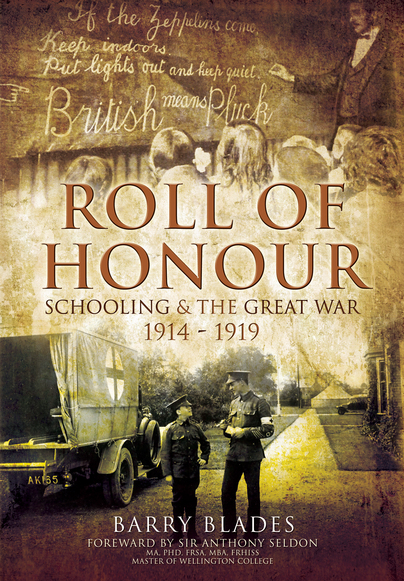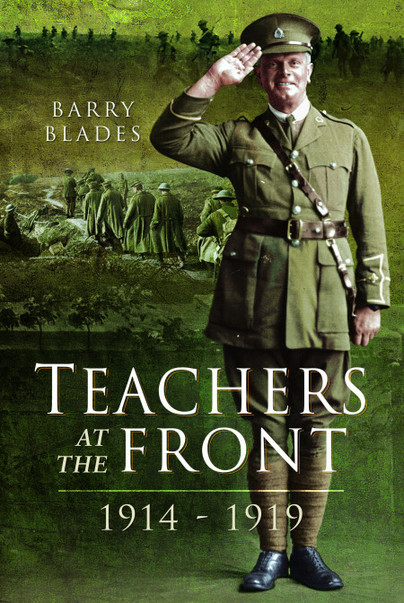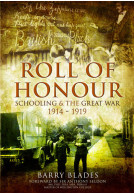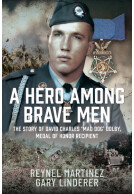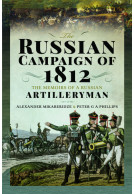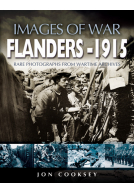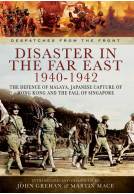Roll of Honour (Hardback)
Schooling and the Great War 1914-1919
Imprint: Pen & Sword Military
Pages: 266
Illustrations: 16-page plate section
ISBN: 9781473821057
Published: 28th October 2015
(click here for international delivery rates)
Order within the next 1 hour, 33 minutes to get your order processed the next working day!
Need a currency converter? Check XE.com for live rates
| Other formats available | Price |
|---|---|
| Roll of Honour Paperback Add to Basket | £18.99 |
| Roll of Honour ePub (33.7 MB) Add to Basket | £6.99 |
The Great War was the first ‘Total War’; a war in which human and material resources were pitched into a life-and-death struggle on a colossal scale. British citizens fought on both the battle fronts and on the Home Front, on the killing fields of France and Flanders as well as in the industrial workshops of 'Blighty'. Men, women and children all played their part in an unprecedented mobilisation of a nation at war. Unlike much of the traditional literature on the Great War, with its understandable fascination with the terrible experiences of Tommy in the trenches, Roll of Honour shifts our gaze. It focuses on how the Great War was experienced by other key participants, namely those communities involved in schooling the nation's children. It emphasises the need to examine the myriad faces of war, rather than traditional stereotypes, if we are to gain a deeper understanding of personal agency and decision making in times of conflict and upheaval. The dramatis personae in Roll of Honour include headteachers and school governors charged by the British Government with mobilising their 'troops'; school masters, whose enlistment, conscription or conscientious objection to military service changed lives and career paths; the temporary school mistresses who sought to demonstrate their interchangeability in male dominated institutions; the alumni who thought of school whilst knee-deep in mud; and finally, of course, the school children themselves, whose campaigns added vital resources to the war economy. Myriad faces such as these existed in all types of British school, from the elite Public Schools to the elementary schools designed for the country's poorest waifs and strays. This powerful account of the Great War will be of interest to general readers as well as historians of military campaigns, education and British society.
This book attempts to present a new perspective on the Great War by avoiding the ‘Tommy in the Trenches’ stereotype and instead looking at how the conflict was experienced by all those involved in the education of the nation’s children. Not just the pupils themselves, who as is already well known, volunteered in their thousands, but by the teachers, the governors, and the wider community. Teachers left the profession, not only to join up, but in some cases because working in munitions offered a far better rate of pay.
Cross and Cockade
By including information about all kinds of schools, and all kinds of communities, the book attempts to avoid concentrating on the famous public schools like Eton and Harrow but none-the-less celebrates the fact that almost a quarter of all V.C.s awarded during the war were given to former pupils of just such schools.
The book is well-written, and the extent of the author’s research is demonstrated by the inclusion of some 26 pages of sources notes and a 13-page bibliography. There is also a comprehensive index and 24 pages of photographs.
Many towns, and many regiments, are given their due attention throughout the narrative and although the air services are only mentioned in passing, I did not feel that they had been unduly neglected.
This book will be a valuable source of information for student essayists and fellow authors.
Journal of the History of Education Society
Argunners Magazine
Roll of Honour, the first book in a planned trilogy, brings WW1 out of the trenches and into the home. Family historians like me will find this book invaluable because it gives insight into the Home Front from which our long-gone grandfathers and great-uncles left for War, and to which some returned. It could also inspire commemorative WW1 projects in schools and family/local history societies, which may be able to unearth more evidence and even some children's artefacts from those times. And, of course, teachers and social/educational historians should be reading it, too, for insights into how schools have developed and society changed in the last hundred years.
Friends of the National Archives
I thoroughly enjoyed the book a real 'tour de force' and very informative.
Dr Charles Barber
'Fascinating, absolutely fascinating! It was even better than I had expected. I cannot but boggle at the amount of research put in and the references to so many schools and people. Indeed, if I have one very slight criticism it is that you are almost overwhelmed by the sheer number of references! I do not write platitudes so when I say that this book is very good to outstanding I really mean that. Of course, with the local references and especially to Deacon’s it had special interest for me but that aside the way in which it is presented is outstanding. It could have become almost a list of things but there is a lot of insight and implicit and explicit overtones that make it much more than just a history. Some of the book is quite moving especially the last 2 chapters but you rightly steer clear of too much blood and thunder. Nevertheless the amount of background to the war itself is excellent and brought in in such a way that it just sets the theme of the book in context. That you have achieved that, which clearly you set out to do, is greatly to your credit. I must say that I have learned quite a lot about both the war and the local schools from this. I had never heard of the Peterborough Practising School for instance. My favourite chapter, incidentally, was On the Front Line and the stories of the loss of child life from Zeppelin raids was completely new to me. You should feel immensely proud of what you have achieved and I admire both your scholarship and tenacity in bringing this topic to a wider audience.'
Brian Anthony
As featured in
Eastern Daily Press
'It offers a fresh, innovative and fascinating perspective of the First World War by focusing at a very human level on how the Great War was experienced by those communities involved in the schooling of the nation's children.'
Norwich Evening News
This book looks at the impact of the Great War on the British school system, covering the entire spectrum of schools from the grandest Public Schools to the national network of elementary schools. The text covers a very wide range of topics, from the initial impact of the outbreak of war to the efforts to remember those who served.
HistoryOfWar.org
Each section covers an impressively wide range of topic - the section looking at the direct impact on the day-to-day life of the schools covers topics such as refugee relief, the production of items for the soldiers and the direct take-over of school buildings by the military. There is an examination of the impact someone's school had on their initial experience of the military, with the army deliberately choosing to recruit new officers from amongst the ranks of former public schoolboys. The section on teachers covers those who stayed at school, those who signed up and their military careers, conscientious objectors, the problems caused for schools by the loss of teachers and the role of women as supply teachers.
The final section, looking at the fallen, helps restore the balance to the debate over the role of the Public Schools. There has been a tendency to downplay the sacrifices of former public schoolboys (often in a legitimate attempt to emphasis the sacrifices of other groups), but as Blades makes clear former pupils of the Public Schools did indeed serve and die in large numbers, with many losing more alumni than their entire pupil body, and 35,000 former public schoolboys killed during the war. While this only represents 5% of the total British deaths, it is still a disproportionally high figure. This doesn't in any way reduce the significance of the sacrifices of the rest of society, but does need to be acknowledged. Well over 2,000 teachers were also lost, doing long-term damage to their profession.
The author examines the way different levels of the education system reacted to and were affected by the war, from the initial period of voluntary recruitment and the way the former school pupils were integrated into the army (with Public Schoolboys much more likely to gain a commission, many having served with Officer Training Corps while at school). The class distinctions carried on after death, with memorials at the greater Public Schools ranging from scholarships to entire chapels.
This is a fascinating examination of the impact of the Great War on the British educational system, and the impact of an individual's educational background on their military career.
As featured on.
Trinity Hall
The Great War was the first "total war", a war which would affect everyone from able bodied soldiers down to the youngest school children. Yet it was not just the elite public school who did their bit, but also those less privileged. The immensely important role played by schools should not be underestimated, for they supplied more than men and masters to the "lost generation" but galvanised a community into supporting the war effort in every way that it could.
OCAD Militaria Collectors Resources
While the majority of Great War books confine themselves to the fighting men and military strategies, Roll of Honour takes a long hard look at a theme seldom examined but of major social and historical importance; the vital contribution made by schools. The author offers a 360 degree perspective of the subject, giving an insight into the differences between social class, types of school and curriculum, as well as the expectations of the pupils. How the pre-war education system was geared up to cultivating patriotism and citizenship, towards the ultimate goal of serving and administering the British Empire for prosperity.
Barry Blades' offering is a triumph of research on a truly neglected subject. Its value lies not only with the military historian wishing to understand the war in a greater detail, but as a social and historical examination of British society and education. The book not only tells of the sacrifices old boys and masters made during the war, but remembers those pupils and teachers killed on the Home Front.
Printed in hardback with an atmospheric sepia style dust cover, its chapters have been organised logically into each major area of 'schooling and the Great War', from teachers to the aftermath of the conflict. A photo section serves to support the text, together with an extensive notes an bibliography section. From cover to cover its near three hundred pages are bursting with interesting information.
Roll of Honour is a very thorough read and one that enlightens a most overshadowed subject. Its explanation of the British school system prior to WW1 is in itself worth a read, but put into context of the Great War is invaluable. Whilst not action packed, it is indeed refreshing to read an account of war from those on the Home Front. If you have a desire to understand the Great War and the full implications of total war then Blades' book more than offers this.
'… powerful account of the Great War...'
Lynn News
Remarkably little has been written about the relationship between schools and the First World War, published to be available to the widest readership. There are vast amounts of documents, in the form of articles and papers about specific schools, published over the last hundred years and mainly existing in archives, never having been widely read. Happily, Pen & Sword has been publishing some important books that attempt to correct the omission, also starting on similar coverage of WWII. In 1914, the situation was unique. The Battles of Trafalgar and Waterloo had given Europe a long period of relative peace. True, the Germans had begun sharpening their swords for the Franco-Prussian War, but there had been nothing to resemble the long periods of religious and national wars that had swept Europe for a thousand years and more. The Great War shattered that period of relative peace and the failure to end the conflict honourably and effectively had created the seeds of the Second World War and, in turn, the Cold War. It is still unclear whether the Cold War ended, or just became another shaky armistice. It is also unclear how the unfinished business from 1945 in the Middle East will be resolved, or the how the competition in the Pacific Rim may provide a new trigger for war. What is certain is that the circumstances of 1914 cannot be replicated at all levels in society. This book is therefore not only an affectionate, sympathetic and moving account of the relationship between schooling and WWI, but one of the very few books to explain a key aspect of that war.
Firetrench
Books about schools in the First World War have tended to focus on the public schools and the ‘old boys’ who lost their lives and are commemorated on the memorials that still adorn many a school hall or corridor.
WW1 Geek
Roll of Honour takes a more holistic approach, examining the impact that ‘total war’ had on schools across the country. The pre-war state of education is used to show how physical fitness and military drill, and the various tales of daring deeds, sacrifice and glory in boys’ magazines, had already started to prepare the generation for war.
Pre-war education was a class-based and hierarchical system of schooling. Although the newly recognised secondary schools were growing in number, they often emulated public schools in terms of their culture and ethos. However, the nuances of society are more complex than the stereotypical view of the public school junior officer that many associate with the war.
Whilst the public school ethos certainly built up pupil’s character – ‘Duty, loyalty, patriotism and self-sacrifice’ – it was not just these pupils and old boys who clamoured to join up; many schools were affected by the number of teachers who enlisted too. Over 15,000 NUT members (men and women) served. This of course led to an increase in the number of female teachers, but they did not always have an easy ride.
Schools did not just provide a breeding ground for potential eager recruits, although headmasters in many cases colluded with (or at least tacitly accepted) those who tried to enlist underage. Blades also examines how schoolchildren were used as almost a ‘reserve force’ who contributed in a wide variety of ways, either through fundraising, the production of items for troops, or even collecting horse chestnuts and acorns that were used in the production of munitions. Often this came at the expense of actual learning; many schools were also requisitioned for use as recruiting stations or billets, or later as hospitals, sometimes in spite of protests about the educational needs of the children.
The war came closer to home with the onset of zeppelin and bombing raids. Some families moved as a result and schools had to take on these new pupils. One raid resulted in a devastating direct hit on a school in Poplar in 1917 where 18 pupils were killed and 30 wounded. The majority of the dead were just 5 years old.
News of the armistice was gratefully received, but tempered by the impact the effects of the influenza pandemic which ravaged the country and temporarily closed many schools. The book naturally covers remembrance and commemoration, exploring the notion of the ‘lost generation’ and showing how it was not just the public schools that suffered.
All schools affected to a greater or lesser extent, and Blades skilfully weaves these stories together to show how almost no aspect of school life remained untouched by the war. The ‘forgotten generation’ not only included the servicemen who returned, but the many bereaved children who had lost fathers and other family members.
The depth and breadth of original research in Roll of Honour is evident, and the book is a refreshing and important addition to the centenary offerings thus far.
This new book gives a powerful account of the impact of the Great War on schools - from moving schools during wartime, to members of the school community who served on the battlefields - while examining the viewpoint of those involved.
Family Tree, Nov 2015
It will be of great interest to general readers as well as family, local and social historians researching the period.
About Dr Barry Blades
Dr Barry Blades is an independent researcher and writer, with a particular interest in the relationship between war and society and the impact of conflict upon individuals and their communities. Barry approaches his work as both a historian and as a professional educator. He taught History in secondary schools in London and Peterborough for over thirty years, and undertook a variety of senior leadership rolesin education as a headteacher, school governor, inspector and consultant. His first book, Roll of Honour: Schooling and the Great War, 1914-1919 (Pen & Sword, 2015) looks at how children and teachers in British schools were affected by the First World War, and how they in turn supported the national war effort. Teachers at the Front, 1914-1919 (Pen & Sword, 2020) develops further the story of teacher-soldiers from British and Dominion teacher training colleges who fought and died in the conflict.
Teachers at the Front, 1914–1919 (Hardback)
August 1914. Flags waved, people cheered and armies mobilized. Millions of citizens throughout Britain responded to the call-to-arms. War fever was contagious. In the far reaches of the British Empire, too, ‘determined colonials’ pledged their allegiance and prepared to serve their King. Amongst the patriots who joined the colours were thousands of schoolmasters and trainee teachers. In London, students and alumni from the London Day Training College left their classrooms and ‘took the King's shilling’. In the Dominions, hundreds of their professional counterparts in Perth, Auckland and…
By Dr Barry BladesClick here to buy both titles for £50.00







